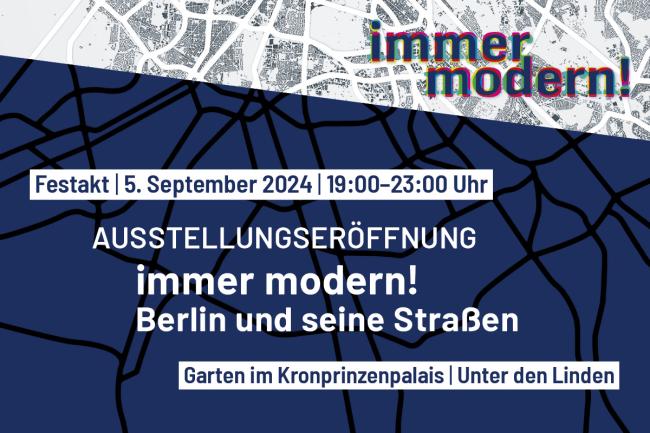Symposium ‘Great Streets of Today: How the conversion can succeed’
The exhibition and the accompanying events ‘immer modern! Berlin and its Streets. 200 Years of Architecture, Urban Planning and Engineering for Berlin’ were kicked off on 5th September with a symposium on the topic of ‘Great Streets of Today: How the conversion can succeed’ at the Kronprinzenpalais Unter den Linden.
To the videos
